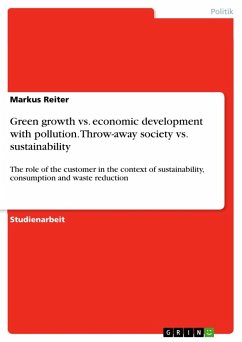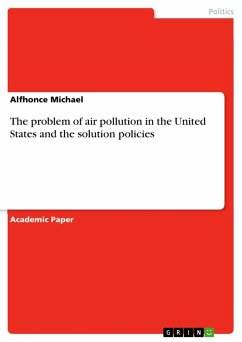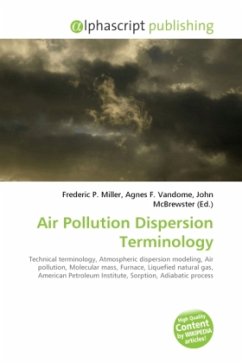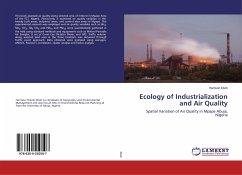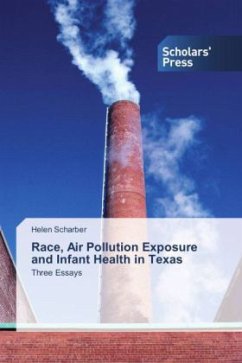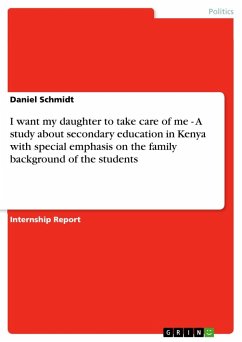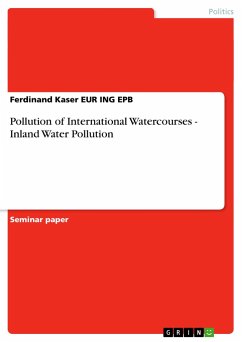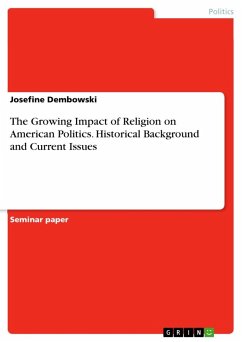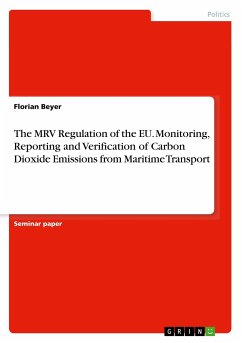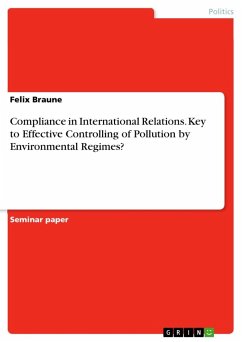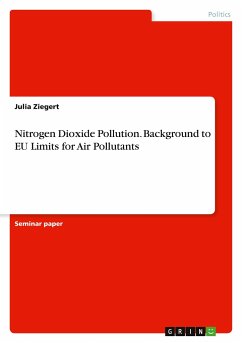
Nitrogen Dioxide Pollution. Background to EU Limits for Air Pollutants

PAYBACK Punkte
0 °P sammeln!
Seminar paper from the year 2019 in the subject Politics - International Politics - Topic: European Union, grade: 2,3, University of Dusseldorf "Heinrich Heine", course: European Environmental Policy, language: English, abstract: This paper is an attempt to provide a comprehensive and systematic overview of European environmental policy, in particular the definition of the air pollutants' limit. The EU itself is not an isolated and closed legislative body, but a highly developed and vastly complex entity at supranational level. In doing so, the EU acts in an environment of international organi...
Seminar paper from the year 2019 in the subject Politics - International Politics - Topic: European Union, grade: 2,3, University of Dusseldorf "Heinrich Heine", course: European Environmental Policy, language: English, abstract: This paper is an attempt to provide a comprehensive and systematic overview of European environmental policy, in particular the definition of the air pollutants' limit. The EU itself is not an isolated and closed legislative body, but a highly developed and vastly complex entity at supranational level. In doing so, the EU acts in an environment of international organisations and institutions on the one hand, and national influences on the other.Moreover, the foundations of EU multi-level governance are based on a highly complex system of vertical and horizontal links. The topic of the environment requires horizontal integration. It should not be forgotten that the states of the EU are in a mutual dependence of the economic and environmental political paradigm. The establishment of the air pollutants' limits in recent months has repeatedly led to heated debates both at EU level and at national level.The main sources of nitrogen oxides are internal combustion engines, especially diesel and combustion plants for coal, oil, gas, wood and waste. It is hardly surprising that, especially in agglomeration areas, high traffic volumes are a major cause for high air pollutants values. In addition, in 2015 the diesel scandal came to light. Large car companies used software that made it possible to simulate lower air pollutants emissions in certain test situations. This scandal is still not completely resolved.As a consequence, due to the high air pollutants emissions, a diesel driving ban is being considered. Apart from the possible health effects that can be caused by the inhalation of fine dust, a diesel driving ban also affects a broad segment of the population. And while the need for a consistent environmental policy is undeniable, this paper seeks to address the question of how the EU set the limit.In the first part of this thesis, I will discuss the process of Policy Making in the European Union by looking at the individual actors. It distinguishes between the horizontal and vertical levels of policy making. In the second part I take a closer look at the actors in the process of determining the air pollutants' value. Here, I will bring their motivation and strategies into focus. The third part of this thesis examines the role of automotive companies in this process and their impact on it.




